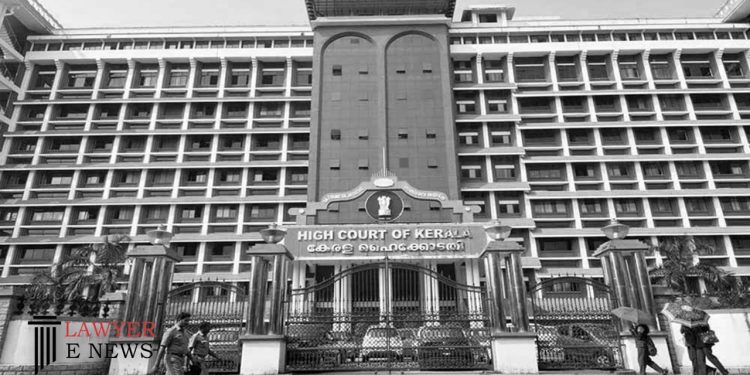Police cannot register crime under Section 195 A of IPC- Kerala HC

The High Court in Kerala has ruled that a police officer cannot register a crime related to an offense under Section 195A of the Indian Penal Code (IPC). Instead, the procedure under Section 195, read with Section 340 of the Criminal Procedure Code (Cr.P.C.), must be followed. The decision was made by a bench of Justice A. Badharudeen, who was considering an application for regular bail under Section 439 of the Cr.P.C. The specific allegation in this case was that the accused had threatened the defacto complainant by posing as a police officer and warning that a separate quotation would be given against him. The police had registered the crime, alleging offenses under Sections 195A of the IPC and Section 120(O) of the Kerala Police Act.
The issue before the bench was whether the bar under Section 195(1)(b)(i) of the Cr.P.C. applied to offenses under Section 195A of the IPC, which was introduced in 2006. Referring to the case of Radhakrishnan P. v. State of Kerala and Others, the bench found that offenses under Sections 167 and 195A of the IPC were interwoven with and inseparable from the offense under Section 193 and therefore subject to the prohibition under Section 195(1)(b)(i) of the Cr.P.C.
The High Court noted that Section 195A of the IPC is a cognizable offense under the Criminal Procedure Code, which grants police the power to investigate the case under Section 156 of the Cr.P.C. The bench also highlighted that a police report is not considered a complaint, as defined under Section 2(d) of the Cr.P.C.
Therefore, any allegation made orally or in writing to a magistrate with the intention of taking action under the code is considered a complaint, except for a police report.
The High Court held that police cannot register a crime related to an offense under Section 195A of the IPC, and that the procedure under Section 195, read with Section 340 of the Cr.P.C., should be followed. The court observed that all other offenses dealt with under Section 195 of the Cr.P.C. are non-cognizable, and therefore, when the threat dealt with in Section 195 of the IPC involves giving false evidence, it is a matter for the court to consider. Consequently, the court ruled that the police’s registration of the crime under Section 195A of the IPC was invalid in law.
However, since the police had also registered a crime under Section 120(O) of the Kerala Police Act, the investigation in this regard can proceed.
The petitioner in this case was arrested on December 11, 2022, and was accused of threatening the defacto complainant over the phone with dire consequences since the defacto complainant offered to act as an approver in a case involving an offense under Section 302 of the IPC. The public prosecutor argued that if the petitioner were released on bail, he would repeat the offense and threaten witnesses in court. The High Court, therefore, refused to grant bail to the petitioner.
In conclusion, the High Court held that police officers cannot register a crime related to an offense under Section 195A of the IPC and that the procedure under Section 195, read with Section 340 of the Cr.P.C., must be followed. The court refused to grant bail to the petitioner in this case.
Suni @ Sunil v. State of Kerala






